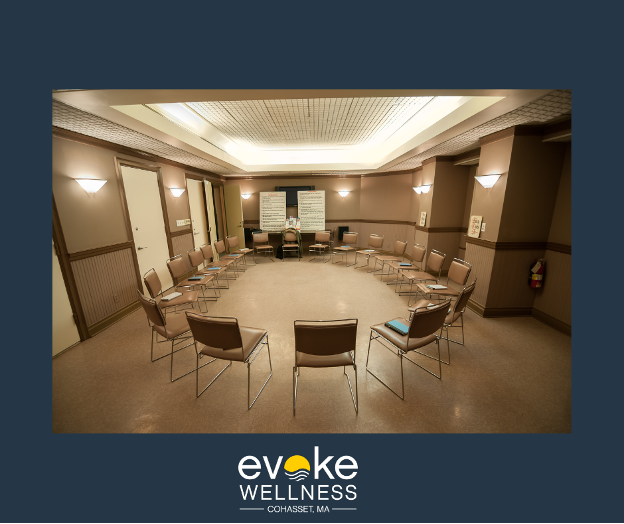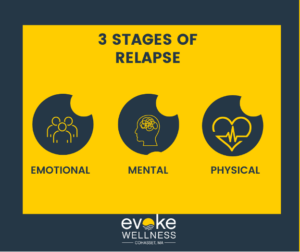You’ve taken the difficult steps to seek treatment and overcome your alcohol addiction. But now you’ve relapsed. Don’t despair, and don’t feel ashamed. Relapse is common for many who struggle with addiction. The important thing is what you do next. With support, understanding, and perseverance, you can move forward again. Relapse happens, but your journey does not have to end here. There is always hope, and help is available. You can start again by calling us at (617) 917-3485 today or reach out online.
What Is Relapse?
A Temporary Setback
Relapse refers to a temporary return to substance use after attempting to quit or achieve sobriety. It’s a common experience on the road to recovery from alcohol addiction. While disappointing, relapse doesn’t mean failure – it’s an opportunity to re-evaluate your approach and renew your commitment. Having a support system and participating in aftercare services provided by treatment centers can lead to a successful road to recovery.
A Learning Process
Relapse often stems from intense cravings, stress, or exposure to triggers. Rather than getting discouraged, see it as a chance to identify what led to the setback. With guidance, you can develop better coping strategies to handle high-risk situations more effectively next time.
Regaining Control
The key is getting back on track quickly. Seek support right away, whether from counselors, a support group, or loved ones. Adjust your treatment plan as needed. Relapse is just a temporary detour – you can regain control over your sobriety with renewed determination.
Why Relapse Happens
Relapse is a common part of the recovery journey for many struggling with alcohol addiction. It does not signify failure, but rather an opportunity to re-evaluate your approach.
Triggers and Cravings
Certain people, places, or situations can trigger intense cravings that make staying sober challenging. Stress, negative emotions, or social events involving alcohol are common triggers.
Unrealistic Expectations
Expecting perfection from the start sets many up for disappointment. Recovery is a process with ups and downs – maintaining realistic expectations is key.
Lack of Support
Having a strong support system is vital. Without loved ones, counselors or peers to lean on during difficult times, relapse becomes more likely.
Complacency
Once initial recovery milestones are reached, some grow complacent and neglect the work required for lasting sobriety. Continued self-care, treatment and vigilance prevent relapse.
While relapse can feel disheartening, it provides valuable insight into personal triggers and areas needing more focus for a successful recovery. With guidance and commitment, getting back on track is achievable.
The Stages of Relapse
Emotional Relapse
The first stage involves emotional and mental relapse. You may experience mood swings, anxiety, irritability or anger. These internal warning signs indicate you are getting closer to a physical relapse.
Mental Relapse
In this stage, the addictive voice in your mind grows louder. You start consciously thinking about using alcohol again and develop cravings. You may actively plan how to acquire and consume it.
Physical Relapse
This final stage involves the actual use of alcohol after a period of sobriety. Physical relapse is the culmination of the emotional and mental stages. It requires starting the recovery process over again.
Recognizing these stages helps you catch a potential relapse early. If you find yourself in any of these stages, seek support immediately from your treatment team, sponsor or loved ones. Relapse is a process, not an event – you have the power to stop it.
Risk Factors for Relapse
Triggers and Cravings
Certain people, places or situations can trigger intense cravings that make it difficult to resist the urge to drink. Emotional distress, social events involving alcohol or drugs, or simply being around others who are drinking can all increase relapse risks.
Poor Coping Strategies
Without healthy ways to manage stress, uncomfortable emotions or cravings, you may revert to drinking as a coping mechanism. Building a lifestyle with positive alternatives like exercise, meditation or talking to a sponsor is crucial.
Lack of Support
Trying to stay sober alone dramatically raises the chance of relapse. A strong sober support network of counselors, peers in recovery, friends and family is vital for accountability and encouragement.
Overconfidence or Complacency
Thinking you have it all figured out and can handle “just one drink” is a dangerous mentality. Recovery is an ongoing process requiring constant vigilance against addiction’s powerful pull.
Triggers for Relapse
Common Relapse Triggers
Certain situations, emotions or stimuli can act as powerful triggers that increase the risk of relapsing into alcohol abuse. These can include:
- Social events or gatherings where alcohol is present.
- Stressful life events like job loss, divorce, or death of a loved one.
- Negative emotions like anxiety, depression, anger or loneliness.
- Seeing alcohol advertisements or passing by familiar bars/liquor stores.
Identifying Personal Triggers
While common triggers exist, it’s important to identify your own personal relapse triggers. Keep a journal and be mindful of high-risk situations. Develop strategies to cope with or avoid those triggers.
Building a Support System
Having a solid support network is crucial. Surrounding yourself with supportive loved ones, joining support groups, or working with an addiction counselor provides accountability and relapse prevention plans. They can help you manage triggers effectively.
Relapse Prevention Strategies
Cognitive-behavioral therapy and individual therapy programs provide vital relapse prevention strategies for overcoming alcohol addiction.
Identify Triggers
Recognizing situations, emotions or behaviors that trigger cravings allows you to develop coping mechanisms. Avoiding high-risk environments and practicing mindfulness techniques can help interrupt the addiction cycle.
Build a Support Network
Surrounding yourself with supportive family, friends and fellow recovering addicts reinforces your commitment to sobriety. Group therapy programs build accountability while providing a judgment-free space to discuss struggles.
Practice Self-Care
Managing stress through exercise, proper nutrition and engaging in enjoyable hobbies replenishes depleted mental reserves. Prioritizing self-care cultivates the resilience needed to overcome urges.
Have a Relapse Plan
Despite best efforts, relapses can occur. Having an action plan with contact numbers and meeting locations provides steps to get back on track quickly. Approaching setbacks with self-compassion is key.
Alcohol Addiction Treatment and Starting Again
Relapse is a common part of recovery. If you’ve slipped and started drinking again, don’t lose hope. There are proven paths to get back on track.
Seek Professional Help
Specialized addiction treatment programs offer acute medical detox, counseling and support groups to overcome alcohol dependence. Inpatient or outpatient rehab provides structure and coping strategies.
Be Accountable
Enlist trusted family or friends to check in regularly. Consider joining a recovery program like Alcoholics Anonymous. Having others to answer to increases commitment.
Address Root Causes
Understanding what triggered your relapse is key. Identify and manage stress, loneliness, mental health issues or other factors that fueled drinking. Combining treatment with lifestyle changes enhances success.
Frequently Asked Questions About Relapse and Addiction Treatment
What causes relapse?
Relapse is a common experience in recovery from addiction. It can be triggered by stress, social pressure, underlying mental health issues, or exposure to environmental cues linked to past substance use.
How can I prevent relapse?
Staying vigilant about relapse prevention is key. Regularly attend support group meetings, follow your treatment plan diligently, and avoid high-risk situations. Build a strong sober support network. Learn to manage cravings through techniques like mindfulness meditation. Be honest with your treatment team about any struggles.
What if I relapse?
Don’t lose hope. Reach out to your therapist, sponsor or support group immediately. Getting back on track quickly gives you the best chance of long-term recovery success. Seek intensive inpatient programs or outpatient programs for further help and accountability. Be compassionate with yourself while also taking responsibility for your actions. Use this experience as motivation to strengthen your relapse prevention skills.
Conclusion
Though relapse can feel defeating, remember that it is a common part of recovery. The most important thing is to get back on track with treatment and support. Reflect on what led to the relapse without self-blame, and identify how to strengthen your recovery plan moving forward. With patience and perseverance, you can regain control. Stay focused on all of the progress made so far, and don’t lose hope. Relapse is not failure; it is an opportunity to learn and grow. You have the inner strength to overcome this disease. Believe in yourself, rely on your support system, and take it one day at a time. A full life of health and happiness is waiting, if you just keep going.
Begin Your Journey with Evoke Wellness at Cohasset
If you or a loved one is considering treatment, Evoke Wellness at Cohasset invites you to contact us. Our compassionate team is ready to answer your questions, discuss your needs, and help you take the first steps toward recovery. In Cohasset, you’ll find more than just a treatment program – you’ll discover a community dedicated to your wellness and success. Together, let’s embrace the journey to recovery and the promise of a new beginning. Call us at (617) 917-3485 today or reach out online.





